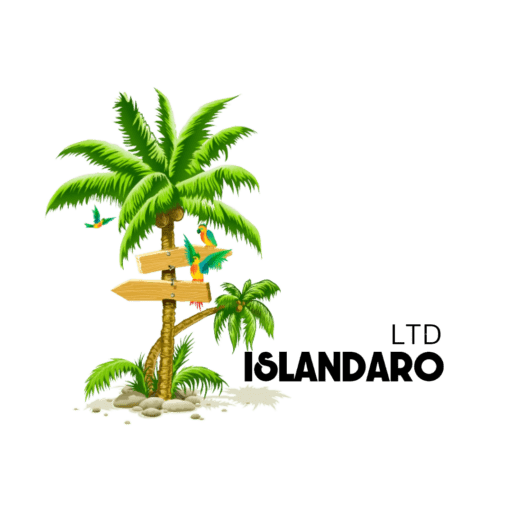Welcome to Girls United Caribbean Heritage Month celebration: Wah-Gwan week, where we’ll deep-dive into the diaspora’s colorful and cultural roots. First on the docket: Homophobia in Caribbean culture. Identity and race have been the two largest epicenters of cultural division over the last few decades, specifically in the Caribbean. Whether someone is considered a minority or still sorting their feelings towards their sexuality, a vast majority have experienced some level of discrimination or mistreatment from those around them. Research studies have shown that this treatment has produced adverse mental health effects regardless of how one identifies. This includes depression, anxiety, and even suicidal thoughts in some cases, as reported by Healthline.
The bold and outspoken nature surrounding Caribbean culture can add an additional layer of vocal opinions regarding acceptance and understanding from others. Generationally, those who identify as part of the LGBTQIA+ community have deemed it necessary to live their lives unapologetically and carefree alongside their nationality. Why, you may ask? It’s a part of who they are, and they’re proud to showcase it.
Many who have faced “coming out” or verbally identifying themselves as gay, pansexual, or even transgender to their loved ones tend to experience ridicule and judgment if it is not a concept already introduced to the people involved. This uncomfortability and unfamiliarity can cause many to act irrationally. Specifically in Caribbean culture, the traditional family unit and way of life with a heterosexual relationship, a “good” job, and kids are ideal. For those who are LGBTQ+, not only is that not their story, but they’re pushing to redefine who or what that story includes.
Read ‘Meet The New Generation Of Women In Caribbean Music’
“Coming from a Haitian background steeped in Christian traditions, it’s clear the world has become more diverse. While expressing myself wasn’t encouraged in my household, and discussions often fell into stereotypes, things have thankfully evolved,” says Mardline “Mardi” Cadet Prevot, a non-binary Bowie State student. Their experience echoes the sentiment of many others regarding the unspoken confinement of expression embedded in some Caribbean households. Luckily, those who classify themselves as LGBTQ+ and Caribbean have developed ways to show up as their entire selves.
“Navigating my identity as both Caribbean-American and LGBTQ+ involves embracing both cultures proudly,” says Whitney Elinor, a creative events manager. “I draw strength from my Haitian heritage, which values pride and resilience, and apply these values to my life as a queer person. In my day-to-day life, I remain true to myself, advocating for understanding and acceptance and creating a space where I can be authentically myself.”
Education and clarity are among the larger themes for those within the community regarding pushing the societal norms within Caribbean culture. “Dominicans have a history of being machismo and macho, but queer people can be machismo and macho, too,” says award-winning entertainment journalist Ty Cole.
For Cole and many others, he has made the conscious decision to show up both personally and professionally unapologetic. Doing so has allowed him to push the needle in spaces where he wouldn’t usually be acknowledged or taken seriously. “Being queer and Caribbean, as much as the odds are stacked against me with being Black, being Caribbean, being gay, and despite all those things, I’m doing the things, and I’m doing them oh so well,” he tells GU.
To avoid further conflict or misunderstanding, this collective of people has leaned on their own self-discovery or the support of others, if not within their own camp, to help them navigate their journey. “It wasn’t easy, but I found a way to embrace my Haitian heritage and LGBTQ+ identity. Meeting other Caribbean queer folks was a revelation. It shattered the feeling of isolation and showed me a vibrant community I never knew existed,” Prevot says.
Queer spaces and voices in said spaces are extremely crucial to the progression of the collective. These spaces allow for healthy dialogue, support, and education. While many of these spaces evoke positivity for those in them, other scenarios have proved that sometimes, even those in the community can be difficult to walk alongside.
A similar sentiment also reigns true in the Caribbean community as both people of the diaspora and those of the LGBTQ+ community grapple with the shifts of a new era. “Even within the community, we are all still learning. You don’t always understand, but it’s not for you to understand; it’s for you to acknowledge a human being and who they are. Just because it’s not your story doesn’t mean be closed off,” Cole says.
Day by day, as those who sit in both worlds of being LGBTQ+ and Caribbean heritage navigate their lives, they emphasize the overarching points of spreading love to be loved towards those they know and beyond. “While there are challenges within the Caribbean community regarding LGBTQ+ acceptance, it is important to recognize the progress and support that can emerge when individuals are willing to learn and grow,” Elinor says. “This dual identity has taught me the importance of resilience, community, and self-acceptance.”
Regardless of age, social status, or how one chooses to identify, those who go against the status quo and bring others alongside them celebrate themselves in June and every day. The limitations of picking one way to represent over another or the lack of diversity in certain spaces are only necessary steps for equality.
Read ‘GU Jams: These Zillennials Could Have The Song Of The Summer’






















